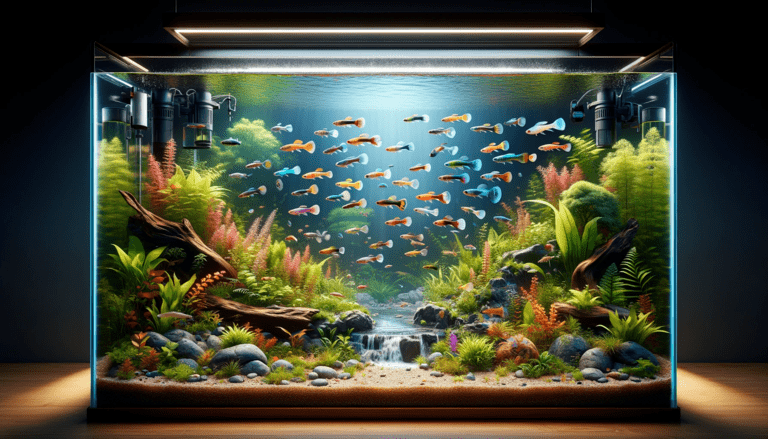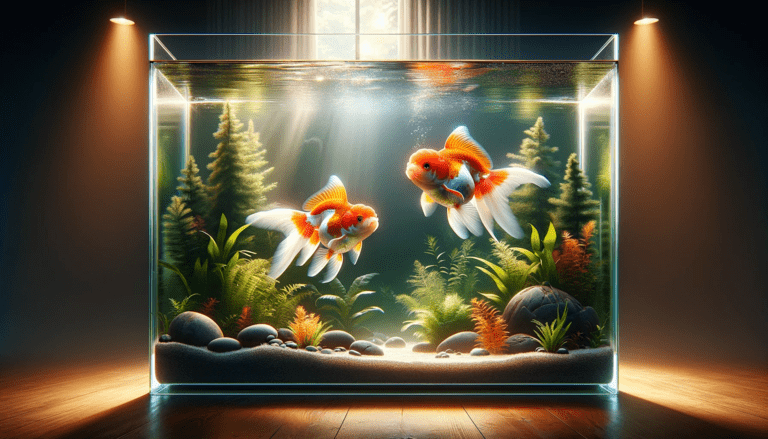Guppy fish, known scientifically as Poecilia reticulata, are captivating creatures renowned for their vibrant colors and dynamic presence in aquariums. Originating from South America, guppies have found their way into tanks worldwide, with almost 300 different varieties identified. These varieties differ in colors, fin shapes, and overall appearance, making each guppy unique.
In the wild, guppies typically have a lifespan of around 2 years. However, when in the care of aquarists, their lifespan can range between 2 to 5 years, depending on various factors such as tank conditions, diet, and genetics. In some instances, with exemplary care, guppies have been known to surpass the 5-year mark.
Guppies experience a straightforward life cycle, starting as fry, evolving through the juvenile stage, and finally reaching adulthood around 6 months of age. It is crucial to note that the care provided during these stages significantly impacts their overall health and lifespan.
Proper tank conditions are paramount for extending a guppy’s life. The most common cause of premature death in guppies is poor water quality. Factors such as high ammonia levels, resulting from overfeeding and insufficient tank maintenance, can be detrimental to their health. Additionally, guppies, being at the lower end of the food chain, are susceptible to predation, which can be a concern, especially in community tanks.
To ensure a healthy, long life for guppies, a well-balanced diet is essential. They are omnivores, requiring a mix of animal and plant-based foods. Regular feeding with high-quality flakes, supplemented with live foods like brine shrimp, daphnia, and bloodworms, is recommended. Vegetable supplements should also be included periodically.
Choosing the right tank is another critical factor. A general guideline is to have 1 gallon of water per inch of guppy fish, which helps maintain optimal water quality. The ideal water temperature for guppies is between 72° F to 78° F, and the aquarium should be free of ammonia.
In conclusion, with the right care, including a balanced diet, appropriate tank conditions, and regular maintenance, guppies can lead a vibrant and extended life in your aquarium. For more detailed information on guppy care, visit our comprehensive Guppies Fish Care Guide.
FAQs on Guppy Fish
- How long can guppies go without food?
Guppies can survive for about 1 to 2 weeks without food. However, this isn’t ideal for their health, especially for younger or pregnant guppies, as they require regular feeding. If you’re planning to be away, consider an automatic feeder or asking someone to feed them. - How often do guppies have babies?
Guppies are prolific breeders. A female guppy can give birth approximately every 30 days. Each birth can result in 20 to 50 fry, depending on various factors including the health and age of the female guppy. - Where do guppies lay their eggs?
Guppies do not lay eggs. They are livebearers, which means the females give birth to live, free-swimming fry. This trait distinguishes them from egg-laying fish species. The female carries the fertilized eggs inside her body until they hatch, after which she gives birth to the fry. - Why did all my guppies die overnight?
Sudden death in guppies can be caused by several factors. Poor water quality, drastic temperature changes, overfeeding leading to ammonia spikes, and diseases like ich or fin rot are common culprits. It’s important to regularly test water parameters, maintain stable conditions, and observe any signs of illness for early intervention.



